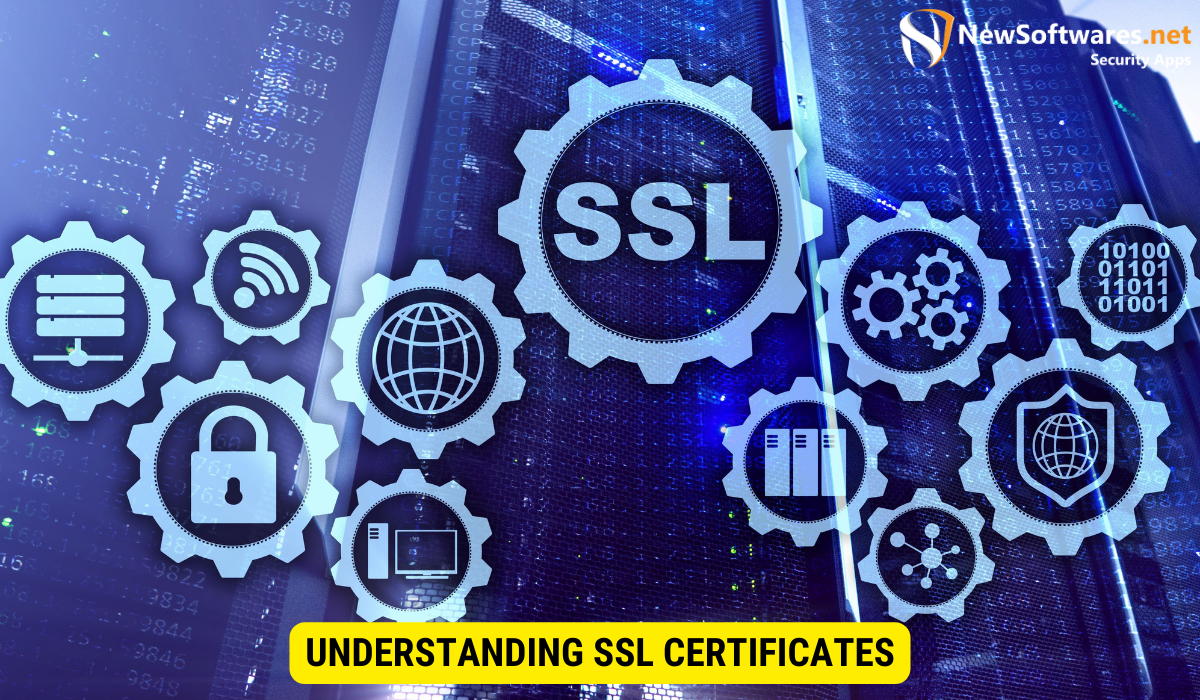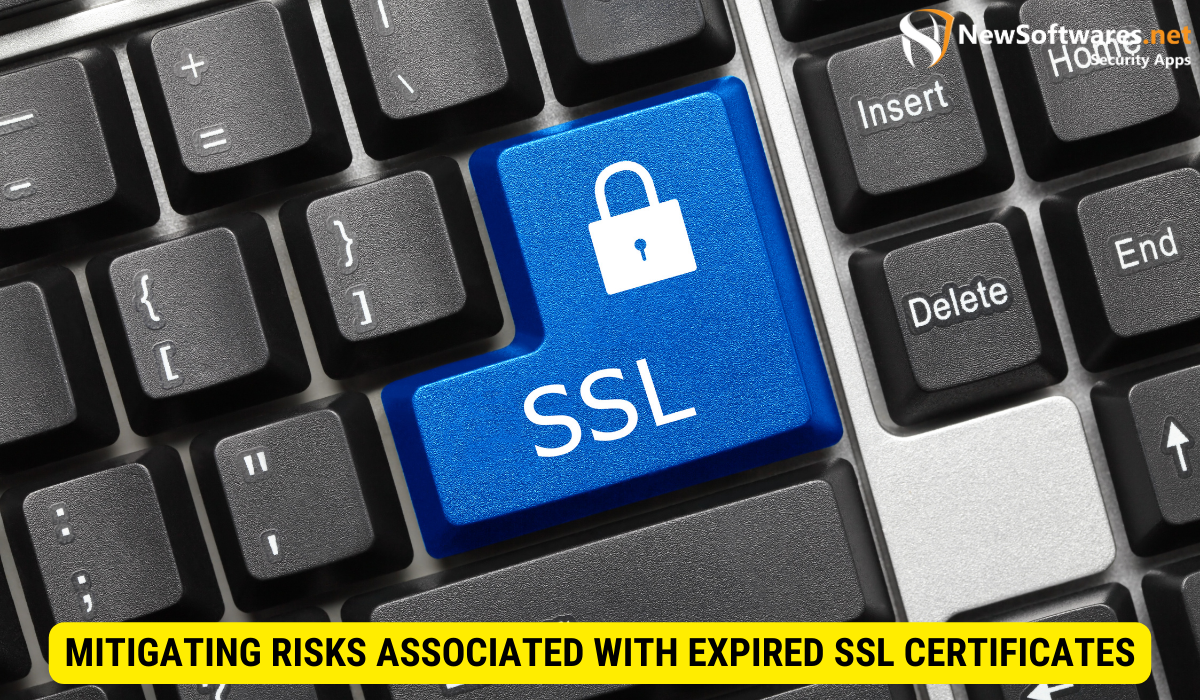When an SSL certificate expires, data encryption for future transmissions becomes vulnerable to interception and unauthorized access.
In today’s digital landscape, data security is of paramount importance. Website owners and administrators deploy various measures to protect sensitive information, and SSL certificates play a pivotal role in ensuring a secure connection between a website and its visitors. However, what happens when an SSL certificate expires? Does data remain encrypted with an expired SSL certificate? Together, we will explore the world of SSL certificates, explore their purpose, and examine the implications of an expired SSL certificate on data encryption.
Understanding SSL Certificates

Definition and Purpose of SSL Certificates
Secure Sockets Layer certificates are digital certificates that set up an encrypted connection between a web server and a client’s browser. This encryption makes sure that data transmitted between the server and the client remains secure and protected from eavesdropping or tampering.
The primary purpose of SSL certificates is to validate a website’s identity, verify its owner’s authenticity, and create a trusted communication channel. When a web has a valid SSL certificate, visitors can be assured that their data is transmitted over a secure connection.
The Role of SSL Certificates in Data Encryption
Data encryption is vital to online security, and SSL certificates are crucial in the encryption process. When a user enters sensitive information on a site with an active SSL certificate, such as personal details or credit card numbers, the data is encrypted before being transmitted over the internet. This encryption makes it very tough for unauthorized individuals to intercept and decipher the information.
SSL certificates utilize complex algorithms to encrypt data, ensuring it is virtually impossible to decrypt without the corresponding decryption key. This level of encryption gives users a sense of trust and confidence when interacting with a website with a valid SSL certificate.
The Lifecycle of an SSL Certificate
Issuance of SSL Certificates
SSL certificates are normally issued by trusted Certificate Authorities (CAs) that have undergone stringent validation. When a website owner decides to secure their site with an SSL certificate, they must first generate a Certificate Signing Request (CSR) from their web server. The CSR contains essential information about the website and is used by the CA to generate a unique SSL certificate for that specific domain.
Once the CA has validated the information provided in the CSR, they issue the SSL certificate to the website owner. The certificate is then install on the web server, connecting the website securely with visitors.
Expiry and Renewal of SSL Certificates
SSL certificates have a finite lifespan and must be renewed periodically to maintain a secure connection. The duration of an SSL certificate can vary with options ranging from a few months to several years. When an SSL certificate approaches its expiration date, website owners must take action to renew it.
Renewal typically involves submitting a new CSR to the CA and going through the validation process again. Once the CA has verified the information, they issue a renewed SSL certificate installed on the webserver to replace the expired certificate. Regular renewal ensures that websites can continue providing visitors with a secure browsing experience.
What Happens When an SSL Certificate Expires?
Impact on Website Accessibility
When an SSL certificate expires, it can significantly impact website accessibility. Most modern browsers warn users when they encounter a website with an expired SSL certificate. These warning messages indicate that the connection may not be secure and discourage visitors from proceeding further.
Such warnings can deter users from accessing the website, resulting in decreased traffic and potential revenue loss. Ensuring SSL certificates are renewed promptly can help maintain a optimistic user experience and prevent any negative impact on website accessibility.
Effect on Data Encryption
An expired SSL certificate undermines the data encryption necessary for maintaining the secrecy and integrity of transmitted information. While the expired certificate does not immediately decrypt existing encrypted data, it poses a significant risk for future data transfers.
Without a valid SSL certificate, data transmitted between the website and the visitor’s browser is susceptible to interception and tampering by malicious individuals. This can lead to illegal access to sensitive information and potential data breaches. It is vital to renew SSL certificates promptly to ensure the continuous protection of data encryption.
The Relationship Between SSL Certificates and Data Encryption
How SSL Certificates Protect Data?
SSL certificates play a crucial role in defensing data during transmission by establishing an encrypted connection. A website with a valid SSL certificate encode the data before sending it over the internet. The intended recipient can only decrypt the encrypted data, ensuring its confidentiality and protecting it from interception.
By encrypting data, SSL certificates provide an extra layer of security and safeguard sensitive information from falling into the wrong hands. This is particularly important for webs that handle sensitive customer data, such as financial institutions, e-commerce platforms, and healthcare providers.
Data Encryption Post SSL Certificate Expiry
Once an SSL certificate expires, the data encryption mechanism it provides is no longer active. This means that any data transmitted between the website and the visitor’s browser is no longer encrypted, leaving it vulnerable to interception and unauthorized access.
While previously encrypted data remains encrypted, subsequent data transmissions will be unencrypted and susceptible to eavesdropping or tampering. Promptly renewing SSL certificates is crucial to maintaining a secure connection and protecting data encryption.
Mitigating Risks Associated with Expired SSL Certificates

Regular Monitoring and Renewal of SSL Certificates
The first step in mitigating the risks linked with expired SSL certificates is to establish a robust monitoring and renewal process. Website owners should keep a close eye on the expiration dates of their SSL certificates and set up reminders well in advance. This proactive approach ensures that certificates are renewed before expiring, minimizing potential disruptions or security vulnerabilities.
Automated monitoring systems can track certificate expiration dates and provide timely notifications. These tools simplify the renewal process and help ensure that SSL certificates are always up to date.
Implementing Automated SSL Certificate Renewal Systems
Automated SSL certificate renewal systems can streamline the process of renewing SSL certificates. These systems automatically generate new CSRs, submit them to CAs for validation, and install the renewed certificates on the web server. Automated renewal systems reduce the risk of certificate expiration and improve overall security by removing the need for manual intervention.
Implementing such systems ensures that SSL certificates are renewed promptly and frees up valuable resources, allowing website administrators to focus on other aspects of maintaining a secure online presence.
Key Takeaways
- SSL certificates are crucial in data encryption and maintaining a safe connection between a website and its visitors.
- An expired SSL certificate can harm website accessibility and compromise the security of data transmission.
- SSL certificates should be renewed regularly to ensure continuous data encryption and maintain visitor trust.
- Without a valid SSL certificate, data transmitted between a website and a visitor’s browser is vulnerable to interception and tampering.
- Implementing automated systems for SSL certificate monitoring and renewal can help mitigate the risks associated with expired certificates.
FAQs
What is the role of SSL certificates in data encryption?
SSL certificates encrypt data before it is transmitted over the internet, protecting it from eavesdropping and unauthorized access. This encryption ensures that insightful information remains confidential and maintains the integrity of data transfer.
Can data encryption be compromised with an expired SSL certificate?
An expired SSL certificate does not immediately compromise previously encrypted data. However, subsequent data transmissions will be unencrypted and susceptible to interception or tampering. Renewing SSL certificates on time is crucial to maintain data encryption.
How can website owners mitigate the risks associated with expired SSL certificates?
Website owners can mitigate these risk by regularly monitoring SSL certificate expiration dates and implementing automated renewal systems. Proactive renewal and automated systems reduce the likelihood of certificate expiration and maintain a secure browsing experience for visitors.
What happens to website accessibility when an SSL certificate expires?
Expired SSL certificates can trigger warning messages on modern browsers, discouraging visitors from accessing the website. This can result in decreased traffic and potential revenue loss. Timely renewal of SSL certificates ensures uninterrupted website accessibility.
How do automated SSL certificate renewal systems work?
Automated SSL certificate renewal systems generate new Certificate Signing Requests (CSRs), submit them to Certificate Authorities for validation, and install the renewed certificates on the web server. These systems eliminate the need for manual interference, reducing the risk of certificate expiration and improving security.
Conclusion
In conclusion, an expired SSL certificate risks website accessibility and data encryption. While previously encrypted data remains secure, subsequent data transmissions become vulnerable to interception and unauthorized access. Renewing SSL certificates promptly and implementing automated monitoring and renewal systems are crucial to ensuring continuous data encryption and maintaining a secure browsing experience. By prioritizing the security of SSL certificates, website owners can protect sensitive information and instill visitor confidence in their online platforms.
